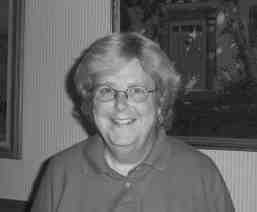
In addition to reading many primary sources, the author actually witnessed the annual reenactment of the Scopes trial at the Rhea County Courthouse in Dayton, Tennessee. She became villainous instead of ignorant. Betty Barker, member of the ladies’ Bible study group, is downright mean and vindictive. This is perfectly acceptable in a fictional book, but I was still annoyed at how the characters completely in disbelief of evolution were presented.

So, white folks in rural Tennessee were highly articulate and only the black kid couldn’t pronounce a final “g” sound? I also found the book highly biased regarding views on evolution. On page 42, he says “I ain’t believin’ things can get much better.” But Jimmy Lee Davis, a high school student, says “That’s when we stopped arguing & started swinging & Mr. I found racism evident in the way Willy Amos, a black twelve-year-old boy, was the only character who was not presented using perfect English. For example, she uses now-passé terms like “colored” and “Negro.” I strongly disliked her use of dialects, though. Also in the Author’s Note, Bryant relates other ways she strives to recapture the feeling of the era. We learn in the Author’s Note that his emotional and personal style is consistent with the actual reporting of the period that she studied in preparation for writing this book. Louis Post-Dispatch,” wired his reports to his boss. The only prose in the book came when Paul Lebrun, a reporter to the “St.

I suspect this is highly subjective and I just didn’t “get it,” but another person could likely take delight in a historical novel of poems. I thought it broke up the story and made it more difficult to read. I did not enjoy this aspect of the book and do not understand why this format was chosen for the presentation of a story surrounding the subject matter of a trial about teaching evolution in schools.

Often offering fictional commentary about the actual events of 1925, each character narrates his or her part through poems. It is amid this historical and highly publicized trial that the novel is set, narrated by 9 fictional characters who have diverse roles, backgrounds, and viewpoints. The advertising ruse took from the trial’s nickname as “The Great Monkey Trial,” which itself was influenced by the misinterpretation that Darwin claimed we evolved from monkeys. The novel “Ringside 1925” invites the viewer in with allusions to a circus and a cover photograph of a chimpanzee, Joe Mendi, borrowed (in real life) by the drugstore owner Fred Robinson as a means of advertising his Dayton, Tennessee, business during the Scopes Trial.


 0 kommentar(er)
0 kommentar(er)
